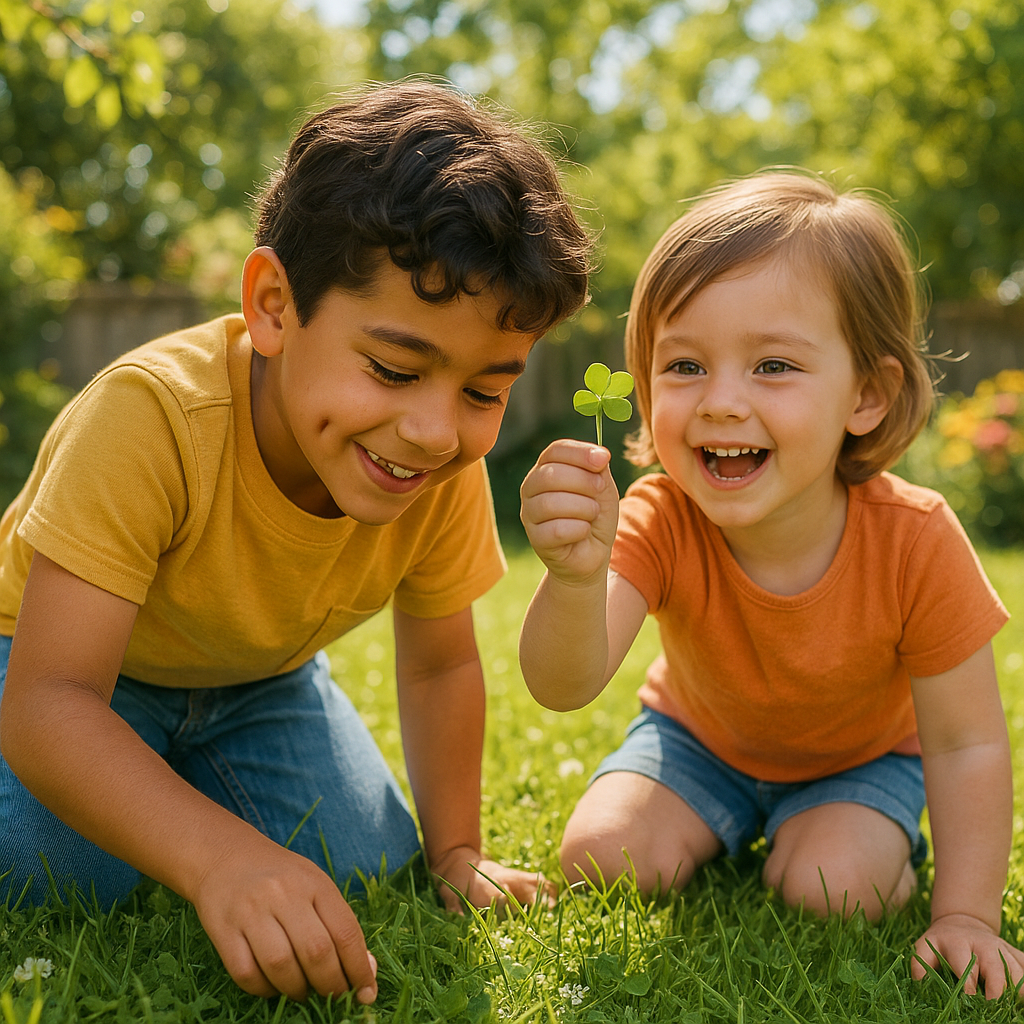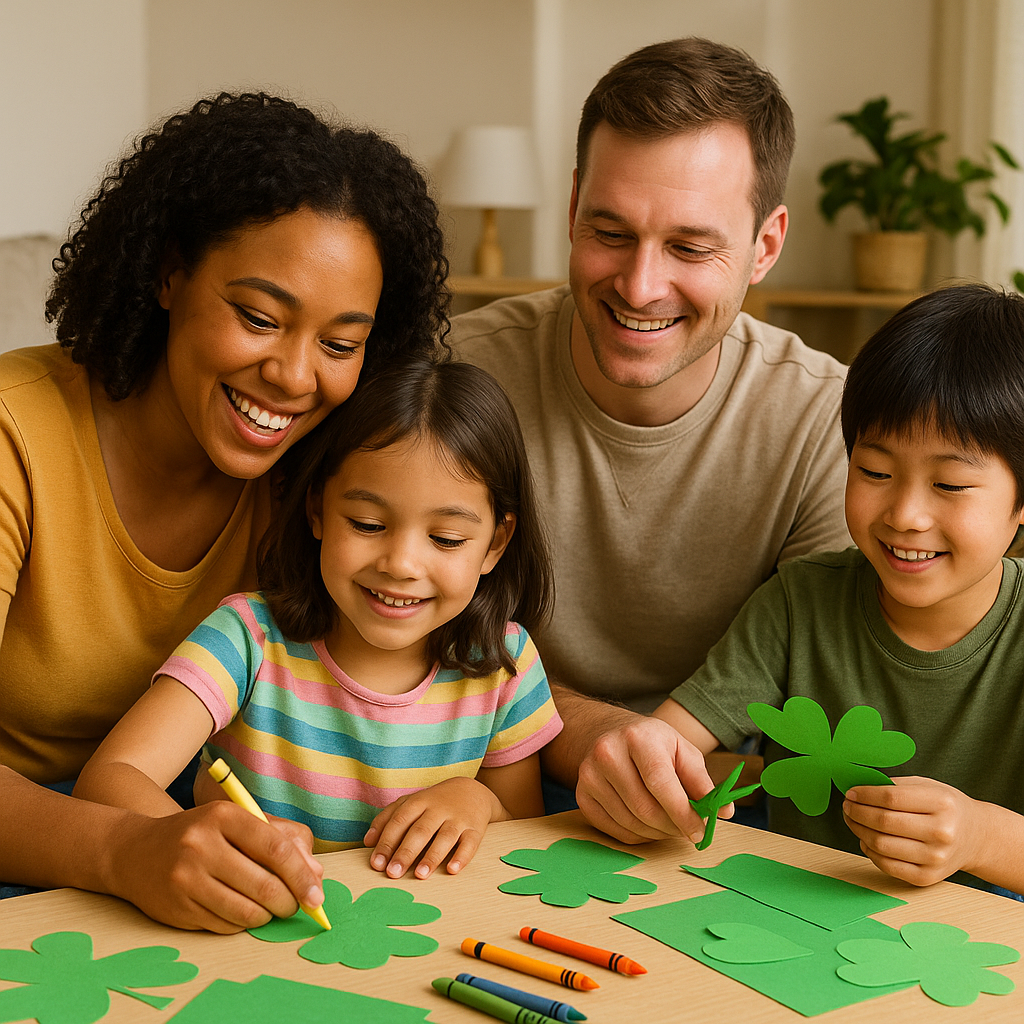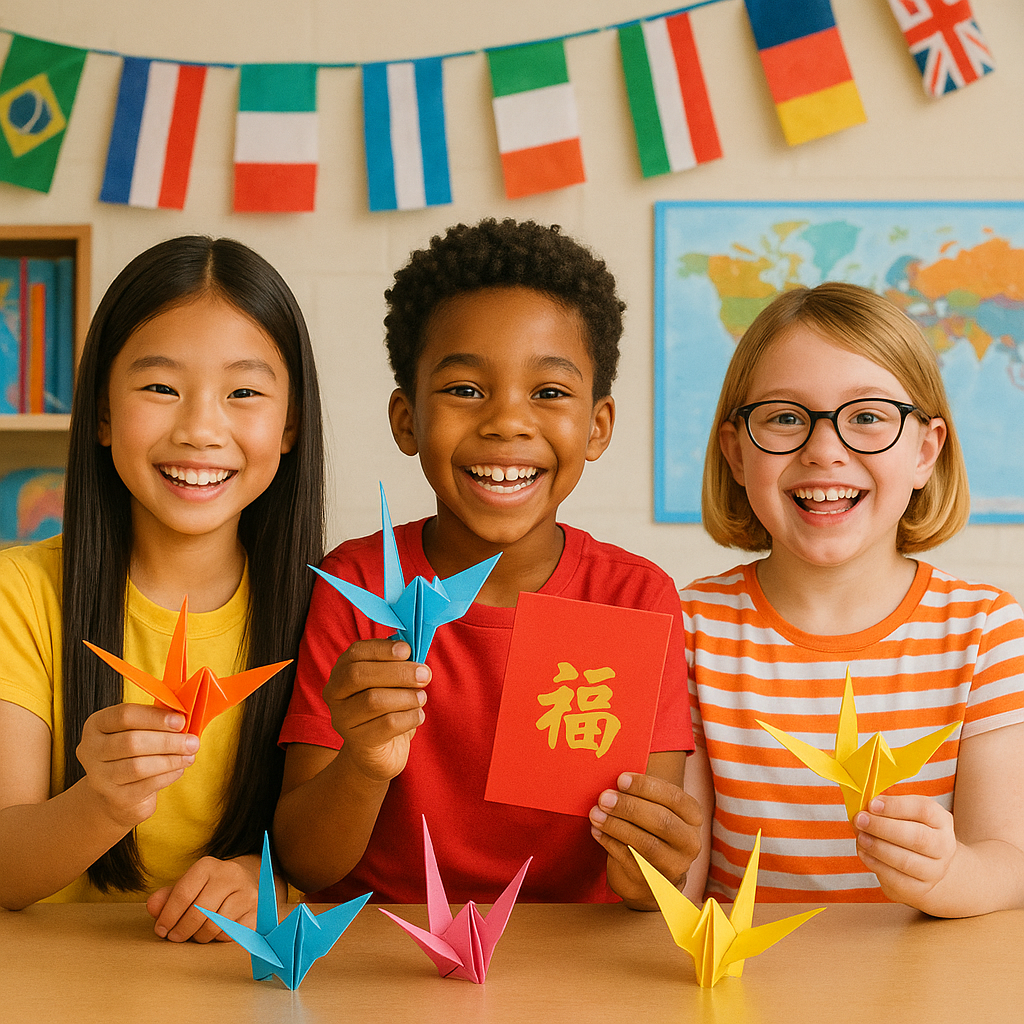The Lucky Edit by Do.Dreamss
Teaching Kids About Good Luck: Simple Traditions That Last
Good luck is more than just a chance occurrence—it's an opportunity to teach children about hope, gratitude, and the balance between fortune and effort. When we introduce youngsters to the concept of luck through meaningful traditions, we help them develop a positive outlook while understanding that their actions still matter. Across cultures, families embrace various charms, sayings, and customs that celebrate good fortune. These practices can evolve into cherished family traditions that children carry with them throughout their lives.
In this guide, you'll discover how to create lasting good luck traditions with your children, learn the importance of balancing luck with hard work, and explore simple activities that make these concepts tangible for young minds. You might also want to explore what's new at Do.Dreamss for fresh ideas on incorporating thoughtful traditions into your family routine.
Why teach kids about good luck?
The concept of luck naturally emerges in a child's world—from blowing out birthday candles and making wishes to hunting for four-leaf clovers on St. Patrick's Day. These moments create natural opportunities for meaningful conversations about fortune, hope, and perspective.
When children understand luck in a balanced way, they develop crucial emotional skills. According to child development specialists, discussions about fortune help youngsters build resilience, practice gratitude, and maintain optimism even when facing challenges. These conversations don't just happen during special occasions; they can become part of everyday life, reinforcing positive thinking patterns.
Teaching optimism through fortune-related traditions also helps children develop self-confidence. When youngsters participate in encouraging rituals before tests or performances, they gain psychological comfort that can reduce anxiety and improve their ability to focus on the task at hand. This combination of hope and preparation creates a foundation for both emotional well-being and future success.
Simple good luck traditions kids love
Creating meaningful fortune-related customs doesn't require elaborate planning—the most enduring traditions are often the simplest ones that easily fit into family life.
Nature-based activities offer wonderful opportunities for fortune-hunting adventures. Take your children on a clover hunt to search for the rare four-leaf variety, teaching them about patience and appreciation for small discoveries.
Collecting smooth stones from special places can become "pocket fortunes" that children carry for comfort during challenging moments. These natural treasures connect youngsters to both the environment and the positive intentions you set together.
Family rituals before important events create powerful memories while building confidence. Consider starting a tradition of special breakfast foods on big days, creating a family handshake or cheer before performances, or establishing a "lucky hat" or accessory that gets worn during significant moments. One family shares how their "lucky pancakes"—regular pancakes with chocolate chips arranged in a smiley face—have become a cherished morning ritual before important school events.
Four-leaf clover craft activity
For a simple fortune-focused craft that even young children can enjoy, create paper four-leaf clovers together. Have each family member write one thing they're grateful for on each leaf. This combines the traditional symbol of fortune with an important lesson about gratitude.
Hang these creations somewhere visible as daily reminders of your blessings and good wishes.
Many families find that incorporating small tokens or symbols into their routines provides comfort and connection. You might want to embrace luck and protection by exploring meaningful accessories that can become part of your family's traditions, from special bracelets to symbolic charms that represent your unique values.
Teaching the difference: luck, blessings, and personal effort
One of the most valuable lessons we can share with children is understanding the relationship between chance and effort. Young minds benefit from learning that while fortune plays a role in life, their own actions remain the most powerful influence on outcomes.
When discussing fortunate events with children, use age-appropriate language to distinguish between different types of positive outcomes. For younger kids, you might explain that "Sometimes good things happen by chance—that's fortune! But most good things happen because we work hard and keep trying." For older children, conversations can include more nuance about how preparation meets opportunity.
Many families incorporate gratitude practices alongside fortune traditions, helping children recognize blessings regardless of their source. Some households keep gratitude jars where family members add notes about fortunate moments or accomplishments. Others practice nightly gratitude sharing, acknowledging both the chance occurrences and earned successes of the day. As children grow, they naturally begin distinguishing between results that come from their efforts versus those that seem to arrive by chance.
Today's parents are finding creative ways to blend traditional wisdom with modern understandings of positive psychology. To discover how other families are navigating these conversations, you might want to explore what's new at Do.Dreamss, where communities share their approaches to raising fortunate, grateful children.
Everyday encouragement—building optimism and resilience
The language we use around fortune and success significantly impacts how children view themselves and their abilities. Simple phrases like "I believe in you" or "You've got this" build confidence, while statements such as "May fortune favor your hard work today" acknowledge both effort and the role of positive thinking.
Morning affirmations can become powerful daily traditions that shape a child's mindset. Encourage youngsters to create and repeat positive statements before school or challenging activities. Something as simple as "I am ready for today's adventures" or "I will do my best and welcome good things" can set a positive tone. Some families post these affirmations on bathroom mirrors or by the breakfast table as visible reminders.
Creating celebration rituals for both effort and outcomes helps children develop a balanced perspective on success. When a child works hard for something—regardless of the result—acknowledge their perseverance. One educator shares how her classroom has a special chair where students can sit and share something they're proud of attempting, whether it succeeded or not. This practice honors the courage to try while recognizing that outcomes aren't always within our control.
For families looking to incorporate more intentional encouragement into their routines, exploring thoughtful tokens that represent perseverance can be meaningful. You might find inspiration by browsing luck and protection symbols that align with your family's values—physical reminders that can accompany your words of encouragement.
Balancing superstition with life lessons
When introducing fortune traditions to children, it's important to strike the right balance between fun customs and meaningful life lessons. This approach prevents superstitious thinking while preserving the joy of special rituals.
Conversations about probability help older children understand the mathematical reality behind "lucky" events. When finding a four-leaf clover, you might explain how rare they are (approximately 1 in 10,000) and how spotting one means being observant and persistent—qualities within their control. These discussions transform seemingly magical occurrences into opportunities to appreciate statistics and develop critical thinking.
Many parents find that framing fortune as "happy coincidences" rather than mysterious forces helps children maintain perspective. When fortunate timing occurs, acknowledge the pleasantness of the surprise while also recognizing the preparation that made it possible. This balanced approach allows youngsters to enjoy the wonder of fortunate moments without becoming dependent on superstitious thinking.
Educational games that incorporate elements of chance alongside skill help illustrate this balance perfectly. Board games with both dice rolls and strategic decisions show children how to maximize opportunities within unpredictable circumstances—a valuable life skill that extends far beyond childhood play.
Cultural traditions around the world
Fortune customs vary widely across cultures, offering wonderful educational opportunities for children to appreciate global perspectives. Exploring these traditions helps youngsters develop cultural awareness while finding common threads in human experience.
In many Asian cultures, certain symbols and colors represent prosperity and good fortune. Sharing stories about how red envelopes are exchanged during Lunar New Year or how origami cranes symbolize good wishes can fascinate children while expanding their worldview.
Consider creating simple craft projects based on these traditions, like folding paper cranes and writing wishes inside.
European traditions offer different perspectives on fortune. From the Italian cornicello (little horn) amulets to German marzipan pigs given at New Year, these customs show how different cultures express similar hopes for prosperity and protection. Cooking projects featuring foods considered fortunate in various cultures create memorable learning experiences through all the senses.
When exploring these traditions, emphasize the values behind the symbols rather than just the customs themselves. This approach helps children understand that across all cultures, people share hopes for safety, happiness, and prosperity—and that these wishes are universal human experiences that connect us across differences.
Creating lasting memories through tradition
The most meaningful fortune traditions are those that evolve alongside your family, adapting as children grow while maintaining their essential spirit. These customs often become treasured memories that children carry into adulthood.
Documentation enhances the significance of family traditions. Consider creating a "Fortune Journal" where family members record special moments, unexpected blessings, or instances when preparation met opportunity. Including photos, drawings, or small mementos creates a tangible history of your family's positive experiences that children can revisit during challenging times.
Many families find that their fortune traditions naturally evolve as children mature. What begins as a simple "good luck kiss" before kindergarten might transform into a special text message of encouragement before college exams. The consistency of the sentiment—rather than the exact form—creates the lasting emotional connection that supports children through life's transitions.
The most enduring traditions are those that combine meaningful symbolism with genuine connection. Whether through special objects, spoken words, or shared activities, these customs create a sense of belonging and continuity that supports children's emotional development for years to come.
Conclusion
Teaching children about good fortune through simple, meaningful traditions offers far more than momentary fun—it helps develop resilience, gratitude, and a balanced perspective on effort and outcome. When we create customs that acknowledge both the role of chance and the importance of perseverance, we equip youngsters with a healthy mindset for navigating life's uncertainties.
The most valuable fortune traditions are those that grow organically from your family's values and interests. Whether you choose nature hunts, morning affirmations, or cultural celebrations, the consistency and intention behind these practices matter more than their specific form. Through these shared experiences, children learn that while they can't control everything in life, their attitude and efforts remain powerful forces.
As you explore and create fortune traditions with your children, remember that the conversations surrounding these customs are just as important as the activities themselves. By talking openly about the balance between luck, effort, and gratitude, you're providing youngsters with emotional tools they'll use throughout their lives—perhaps the most fortunate gift of all.
FAQ
What are some easy good luck traditions for kids?
Try finding four-leaf clovers, making lucky charms, or saying a family "good luck" cheer before big events.
How do I explain luck versus effort to children?
Tell kids that luck means something happens by chance, while effort is what happens when we work hard and try our best. Sometimes both can help us succeed!
Are good luck rituals important for children?
Yes—rituals create a sense of belonging, hope, and comfort, and can teach positivity and gratitude in daily life.
How can I use good luck messages without making kids superstitious?
Focus messages on encouragement, effort, and optimism, emphasizing the value of trying, learning, and celebrating small wins.
Can these traditions be used in both secular and faith-based families?
Absolutely—adapt the language and focus to align with your family's or classroom's values.








